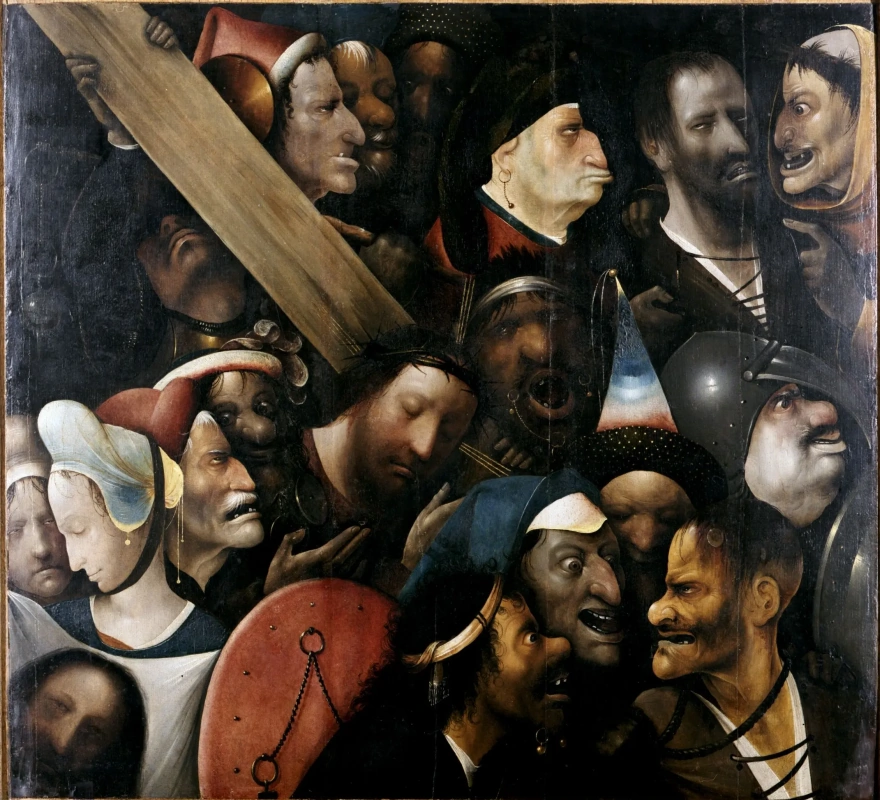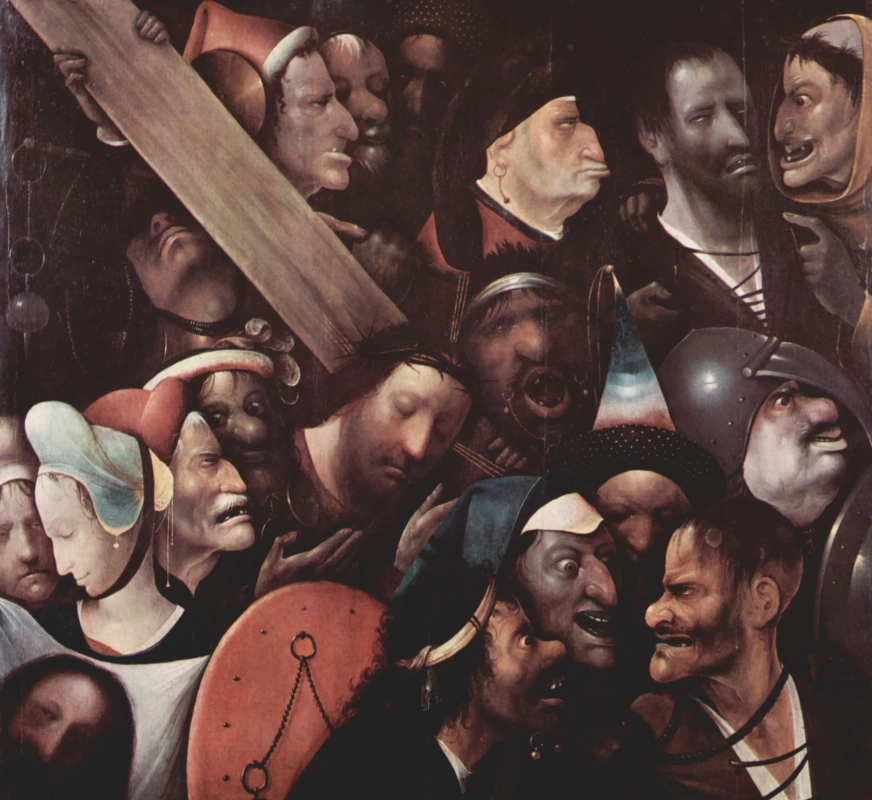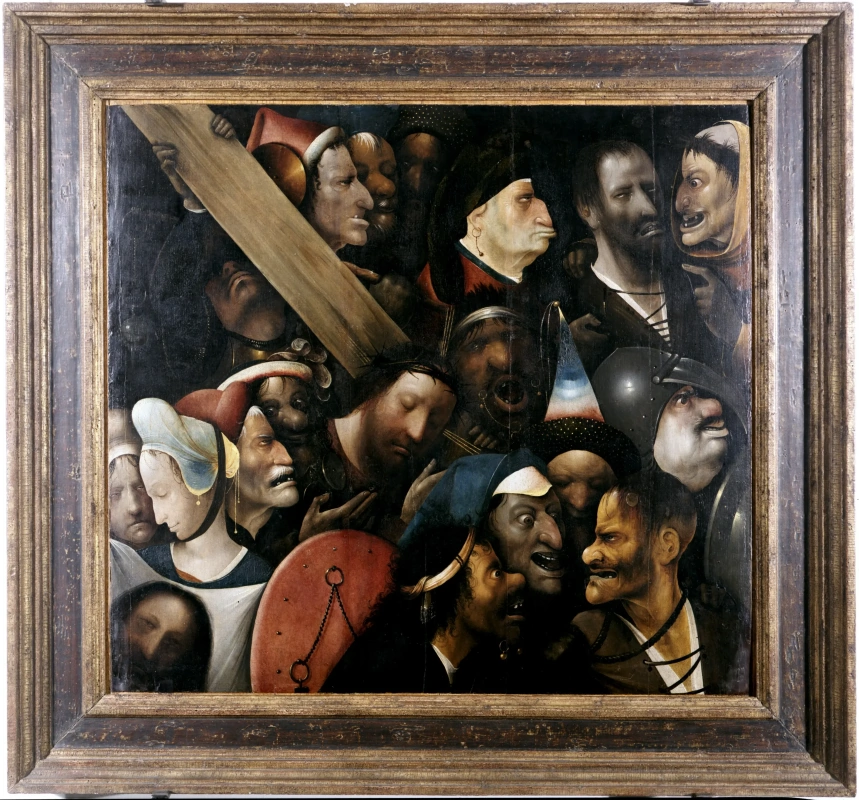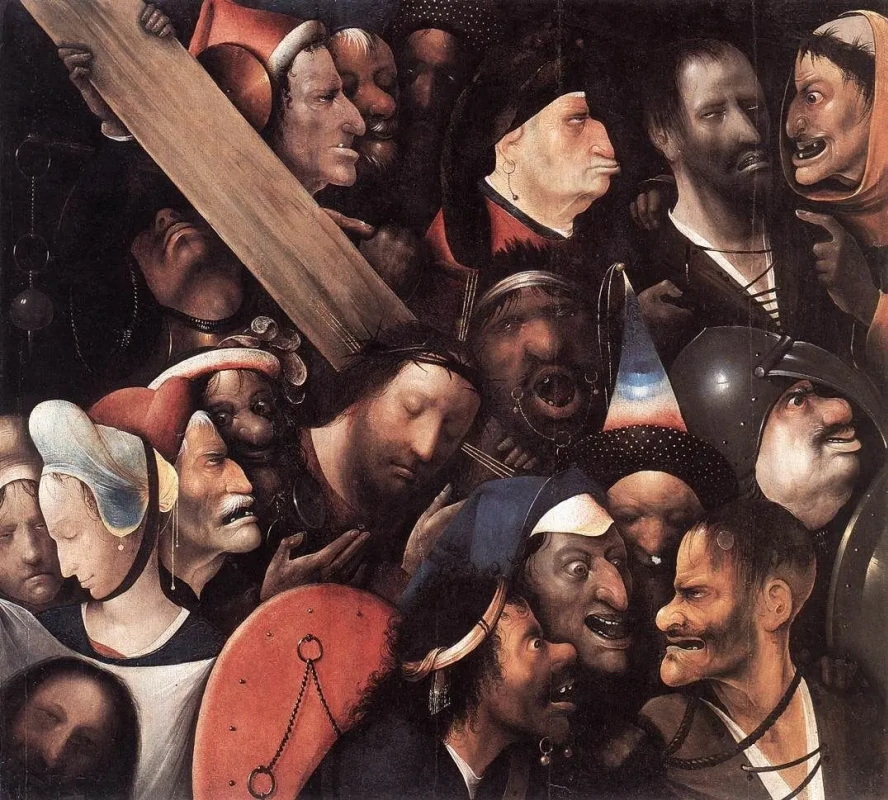log in
Enter site
Login to use Arthive functionality to the maximum
Christ Carrying the Cross
Hieronymus Bosch • Pintura, 1510-e
, 83.5×76.7 cm












Descripción del cuadro «Christ Carrying the Cross»
Along with "The garden of earthly delights", "Christ Carrying the Cross" had been long considered the most recognizable work of Hieronymus Bosch. It was perceived as Bosch`s creative Manifesto, the symbol of faith". Too impressive, this hell mosaic composed of tightly fitting to each other degenerate faces is so disgusting and fascinating at the same time. The work was regarded as undoubtedly great and innovative.
"Christ Carrying the Cross" from Ghent was considered in some sense the hallmark of Bosch, a work that cannot be attributed to anyone else. A Spanish monk José de Sigüenza once astutely wrote about the Bosch: "The difference between this man and the works of other painters lies in the fact that others try to depict people as they appear on the outside, while he had the courage to portray them for who they are inside".
Is "Christ Carrying the Cross" an imitation?
The recognition of the painting was so wide that the conclusion of Dutch scientists made in 2016 after a large-scale studies, became a sensation. Experts say that it is not Bosch! The picture from Ghent is indeed created in the era of Hieronymus Bosch, and probably even came out of his workshop, but it does not belong directly to the Bosch. This is most likely not original, but an imitation.
The Director of the Museum of tjhe Ghent Museum of Fine Arts rightly said: "If indeed 'Christ Carrying the Cross' does not belong to the hand of Hieronymus Bosch, then only a genius even larger than Bosch could paint it."
"Christ Carrying the Cross" from Ghent was considered in some sense the hallmark of Bosch, a work that cannot be attributed to anyone else. A Spanish monk José de Sigüenza once astutely wrote about the Bosch: "The difference between this man and the works of other painters lies in the fact that others try to depict people as they appear on the outside, while he had the courage to portray them for who they are inside".
Is "Christ Carrying the Cross" an imitation?
The recognition of the painting was so wide that the conclusion of Dutch scientists made in 2016 after a large-scale studies, became a sensation. Experts say that it is not Bosch! The picture from Ghent is indeed created in the era of Hieronymus Bosch, and probably even came out of his workshop, but it does not belong directly to the Bosch. This is most likely not original, but an imitation.
The Director of the Museum of tjhe Ghent Museum of Fine Arts rightly said: "If indeed 'Christ Carrying the Cross' does not belong to the hand of Hieronymus Bosch, then only a genius even larger than Bosch could paint it."
Publicaciones sobre la obra








